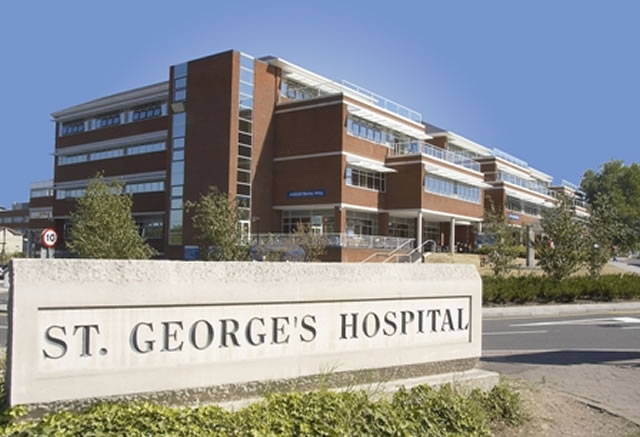St George's Hospital Opens Dedicated Coronavirus Unit
A specialist pod set up to isolate people who are suspected of having the virus

A specialist pod to isolate people who are suspected of having coronavirus has been set up at St George’s Hospital.
All hospitals have been advised to set up the pods in their emergency departments.
So far in the UK, 13 people have tested positive for the virus, while a total of 7,132 people have been tested nationwide according to the latest statistics updated at 2:18pm this afternoon [February 26] by the Department for Health and Social Care.
This means 7,119 people have tested negative for the virus.
The department could not break down the number of people tested at St George’s so far.
An NHS spokesperson said: “Following national guidance all hospitals are putting in place NHS 111 pods at their emergency departments, so that anyone attending hospital with symptoms of the virus can be kept isolated from other patients and avoid causing unnecessary pressure in A&E.
“Over the coming weeks many more of us may need to self-isolate at home for a period to reduce this virus’s spread. Everyone can continue to play their part by taking simple steps such as washing hands to prevent the spread of infection and calling NHS 111 first before going to the doctors or A&E if they have any concerns about or show symptoms of coronavirus.”
How does the testing work?
Those who attend hospital with suspected cases are kept in isolation away from public areas of the hospital and returned home in isolation.
Any equipment that comes into contact with suspected cases has to be thoroughly cleaned.
Hospital staff are following specific guidance from NHS England to keep themselves and others safe.
What to do if you think you have it
Advice on the trust’s website is to call 111 if you are concerned that you may have been exposed to Coronavirus (Covid-19), who will advise you on what to do next, and to isolate yourself from others.
You should not attend A&E at St George’s or your local hospital.
A statement on the hospital’s website reassures visitors that services are operating as normal and that patients should attend outpatient appointments and planned treatments as normal.
The current risk is very low, but if you have returned from Iran, lockdown areas in Northern Italy, or special care zones in South Korea since February 19 you should call 111 and stay indoors and avoid contact with others even if you have no symptoms.
The same applies if you have returned from Hubei province in China in the past 14 days.
If you have symptoms, however mild, you should do the same if you’ve returned from, Northern Italy (defined by a line above, and not including, Pisa, Florence and Rimini), Vietnam, Cambodia, Laos and Myanmar since February 19.
Yesterday (26th February) Ashcroft Academy staff and students were sent home as a precaution over coronavirus.
Public Health England advice is to:
+ Carry tissues and use them to catch your cough or sneeze. Then bin the tissue, and wash your hands, or use a sanitiser gel
+ Wash your hands often with soap and water, especially after using public transport. Use a sanitiser gel if soap and water are not available.
+ Avoid touching your eyes, nose and mouth with unwashed hands.
+ Avoid close contact with people who are unwell.
Sian Bayley - Local Democracy Reporter
February 27, 2020
Related links
|
Staff and Students Sent Home as a Precaution Over Coronavirus from Ashcroft Academy Register for your newsletter from: |